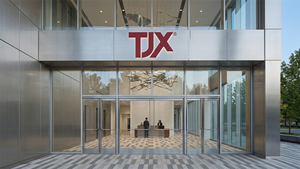In annual survey spanning three areas of health—financial, mental and physical—American workers express a 15 percent year-over-year increase in concerns over financial health
Survey reveals disconnect between employers prioritizing health and dental insurance, HSAs and charitable contributions, while employees prioritize increased pay and 401(k) matches
The American workplace landscape is undergoing profound shifts according to the latest survey from Franklin Templeton. In its fourth year, Franklin Templeton’s Voice of the American Workplace Survey found that 91 percent of employers experienced turnover rates exceeding 10 percent in 2023. Furthermore, employee expectations, particularly regarding compensation, are on the rise, with 80 percent of employers struggling to meet demands for increased compensation. This year's survey examined both employer and employee perspectives, emphasizing the crucial need for aligning expectations with available resources.
“Managing heightened employee expectations is one of the biggest challenges facing employers today,” said Jacque Reardon, Head of Client Marketing for Retirement, Insurance, 529 and Wealth Management for Franklin Templeton. “Understanding employee preferences and effectively communicating available resources is paramount for organizations aiming to attract and retain top talent. Employers must articulate the holistic value of total compensation and benefit packages to ensure alignment with employee needs and preferences.”
Aligning Employer Offerings with Employee Needs
While employers strive to address employee needs, there is a clear disconnect between offered benefits and employee preferences. The survey reveals that employees prioritize increased pay (56 percent) and 401(k) matches (42 percent), while employers assume preferences for improved health and dental insurance, health savings accounts (HSAs), and charitable contributions. Meanwhile, 70 percent of American workers indicate their salary is not keeping up with inflation.
In addition, 49 percent of employers surveyed are providing access to resources like financial wellness platforms, yet only 28 percent of employees are leveraging them, and 72 percent of employees admit that they struggle to understand the benefits available to them. Nearly a third (29%) admit they struggle to understand the monetary value of employer-provided benefits. The American worker has also expressed interest in more personalized offerings in their 401(k) and overall benefit packages – 84 percent and 82 percent, respectively. Meanwhile, 90 percent of employees increasingly seek work-life balance to enhance their wellbeing.
“To address these challenges, employers must prioritize strategies focused on employee retention and satisfaction, which may entail offering competitive compensation packages and fostering positive work environments that prioritize employee wellbeing and work-life balance,” added Reardon. “By aligning with employee expectations and prioritizing their satisfaction, employers can mitigate turnover and cultivate a more engaged and productive workforce.”
Financial Stress and the Pursuit of Financial Independence
The survey also sheds light on the financial stress experienced by American workers, with financial independence emerging as a major concern. Workers express heightened anxiety regarding income, retirement savings, and healthcare costs, which surpass concerns about mental and physical health.
Notably, nearly two-thirds (61 percent) of workers feel that their financial independence is jeopardized by the current economic environment, as they struggle to achieve important financial milestones. Other key concerns are recurring expenses (66%), healthcare costs (64 percent) and student loan debt (47 percent), and nearly half (47 percent) say their ability to retire feels in jeopardy due to the current economic situation.
“Each year, we've asked questions across three areas of health: financial health, mental health, and physical health,” said Reardon. “Generally, importance and concern are even across all three areas, but for the first time this year we see that financial health far outweighs concerns in other areas. In fact, there is a 15 percent increase year-over-year in concern over financial health.”
The survey was conducted by The Harris Poll on behalf of Franklin Templeton and the Retirement Innovation Initiative (RII), which launched in January 2020 and brings together industry experts to help improve the future of retirement in the U.S.
Methodology
The Voice of the American Employer Survey was conducted by The Harris Poll on behalf of Franklin Templeton from November 6 to 17, 2023. All 1,000 respondents, based in the United States, are classified as employers, defined as having at least some influence over company benefits and/or hiring at organizations with over 100 employees. Respondents represent a mix of industries, company size, role, age, and race.
The Voice of the American Worker Survey was conducted by The Harris Poll on behalf of Franklin Templeton from November 9 to 21, 2023, among 2,001 employed US adults. All respondents had some form of retirement savings. This online survey is not based on a probability sample and therefore no estimate of theoretical sampling error can be calculated. Findings from previous years reference studies of a similar nature that were conducted by The Harris Poll on behalf of Franklin Templeton. The 2022 survey was fielded from October 17 to October 27, 2022 among 1,000 employed adults
About Franklin Templeton
Franklin Resources, Inc. [NYSE: BEN] is a global investment management organization with subsidiaries operating as Franklin Templeton and serving clients in over 150 countries. Franklin Templeton’s mission is to help clients achieve better outcomes through investment management expertise, wealth management and technology solutions. Through its specialist investment managers, the company offers specialization on a global scale, bringing extensive capabilities in fixed income, equity, alternatives and multi-asset solutions. With more than 1,300 investment professionals, and offices in major financial markets around the world, the California-based company has over 75 years of investment experience and approximately $1.6 trillion in assets under management as of January 31, 2024. For more information, please visit franklintempleton.com and follow us on LinkedIn, Twitter and Facebook.
Copyright © 2024. Franklin Templeton. All rights reserved.
Franklin Distributors, LLC. Member FINRA/SIPC. Franklin Distributors, LLC is a Franklin Templeton affiliated company.
TN24-13
View source version on businesswire.com: https://www.businesswire.com/news/home/20240228100706/en/
Contacts
Rebecca Radosevich, (212) 632-3207, rebecca.radosevich@franklintempleton.com




